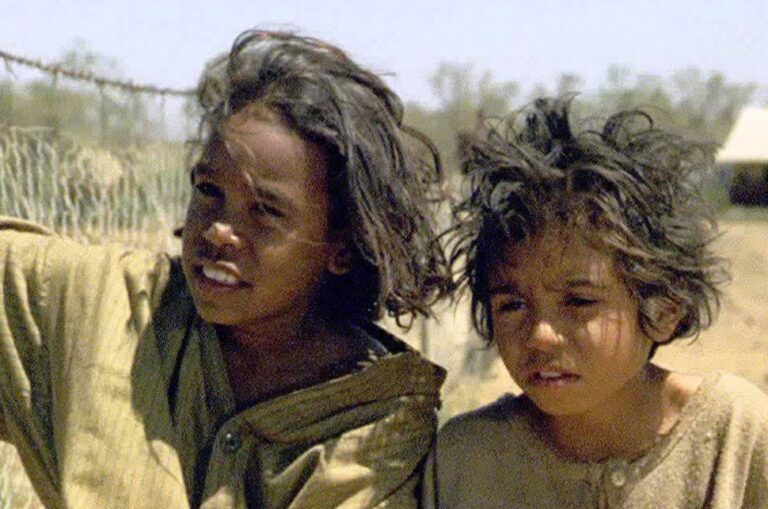Today, May 26th, is National Sorry Day, one of the most important annual events in Australia. It’s when the country comes together to commemorate the Stolen Generations, the Aboriginal and Torres Strait Islander people who were forcibly removed from their own families under atrocious government policies.
The survivors never forget the violence they experienced or the undue pain they suffered, and have to deal with the indelible trauma that reverberates through generations.
For the rest of us, National Sorry Day is an ongoing process of education and commemoration. We’ve compiled a list of four important Indigenous Australian films that focus on the Stolen Generations.
For more on this topic, follow the Film & TV Observer.
Rabbit-Proof Fence (2002)
The best thing Phillip Noyce’s film (and Doris Pilkington Garimara’s book that it’s based on) does is focus the narrative on two children: Rabbit-Proof Fence follows two young girls as they walk over 2,000km to return to their ancestral community at Jigalong, all while being pursued by white authorities.
Simmering tension and heartbreaking emotion made this one of the British Film Institute’s 50 films everyone should see by the age of 14.
Radiance (1998)
Adapted from Louis Nowra’s play of the same name, Radiance grapples with the conflicted emotions when a scattered family come back together suddenly. The film follows three Indigenous sisters reuniting for their mother’s funeral.
Radiance is also notable for being the film debut of Deborah Mailman, one of Australia’s greatest actresses, who became the first Indigenous Australian to win the Australian Film Institute Award for Best Actress in a Leading Role.
The Sapphires (2012)
A musical comedy-drama featuring the star power of Mailman and Jessica Mauboy, The Sapphires was a huge hit a decade ago. Chris O’Dowd played a talent scout who happily discovers an all-female Indigenous Australian singing group in the 1960s.
As the group heads to Vietnam to entertain the troops during the war, one of them, Kay, struggles to reconcile her multi-ethnic identity, having been forcibly removed from the family by the government as a child and sent to institutions to learn how to be ‘white’.
Utopia (2013)
Harrowing and powerful, John Pilger’s documentary doesn’t shy away from laying bare the realities of daily existence for Indigenous Australians. The filmmaker journeys to the titular Utopia in the Northern Territory, one of the poorest areas in the country, documenting it between 1985 and 2013.
Pilger soon discovers that little positive change has been enacted in three decades, with the people still living in poverty, battling terrible healthcare and overcrowding. Wealth inequality, Aboriginal deaths in police custody, and failed governmental policies are all detailed in the documentary.
https://www.youtube.com/watch?v=ht8_5UlcgSQ

































